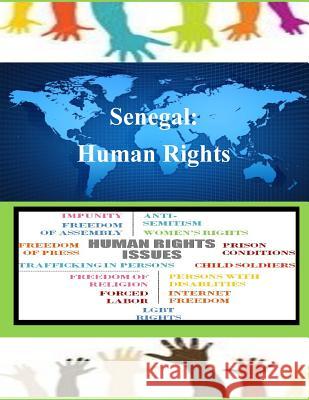Senegal: Human Rights » książka
Senegal: Human Rights
ISBN-13: 9781502878892 / Angielski / Miękka / 2014 / 26 str.
Senegal is a moderately decentralized republic dominated by a strong executive branch. In March 2012 voters elected Macky Sall to succeed Abdoulaye Wade as president for a seven-year term. In July 2012 Sall's coalition won a majority of seats in the National Assembly. Local and international observers viewed the elections as largely free and fair. Authorities generally maintained effective control over the security forces. Security forces committed human rights abuses. The most significant human rights problems included long pretrial detention, overcrowding in prisons, and corruption. Other major human rights problems included: reports of physical abuse and torture; questionable investigative detention; lack of an independent judiciary; rape, domestic violence, sexual harassment of and discrimination against women; female genital mutilation/cutting (FGM/C); child abuse; forced and early marriage; infanticide; violence and discrimination against lesbian, gay, bisexual and transgender (LGBT) persons; discrimination against persons with HIV/AIDS; trafficking in persons; and child labor. The Sall government continued efforts to investigate and hold to account former Wade administration officials accused of corruption. Impunity for crimes and abuses committed by government and security officials remained a problem. Rebels associated with the Movement of Democratic Forces of the Casamance (MFDC) planted landmines, kidnapped civilians, committed robberies, and harassed local populations while fighting each other.
Zawartość książki może nie spełniać oczekiwań – reklamacje nie obejmują treści, która mogła nie być redakcyjnie ani merytorycznie opracowana.











